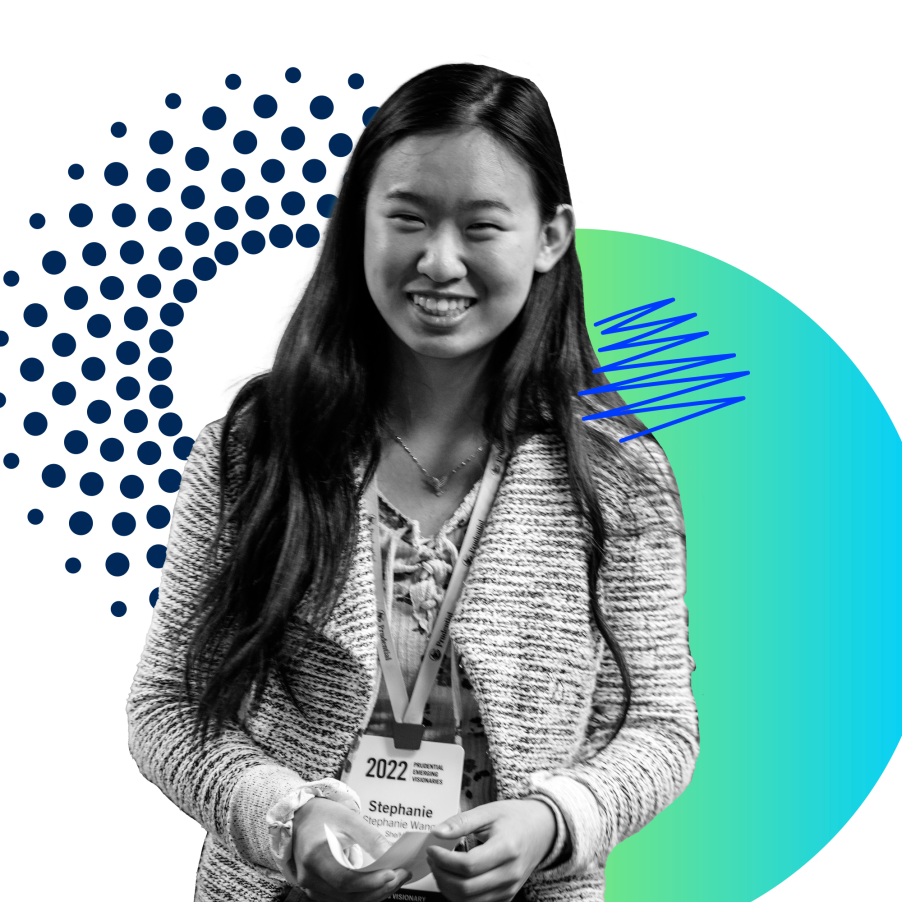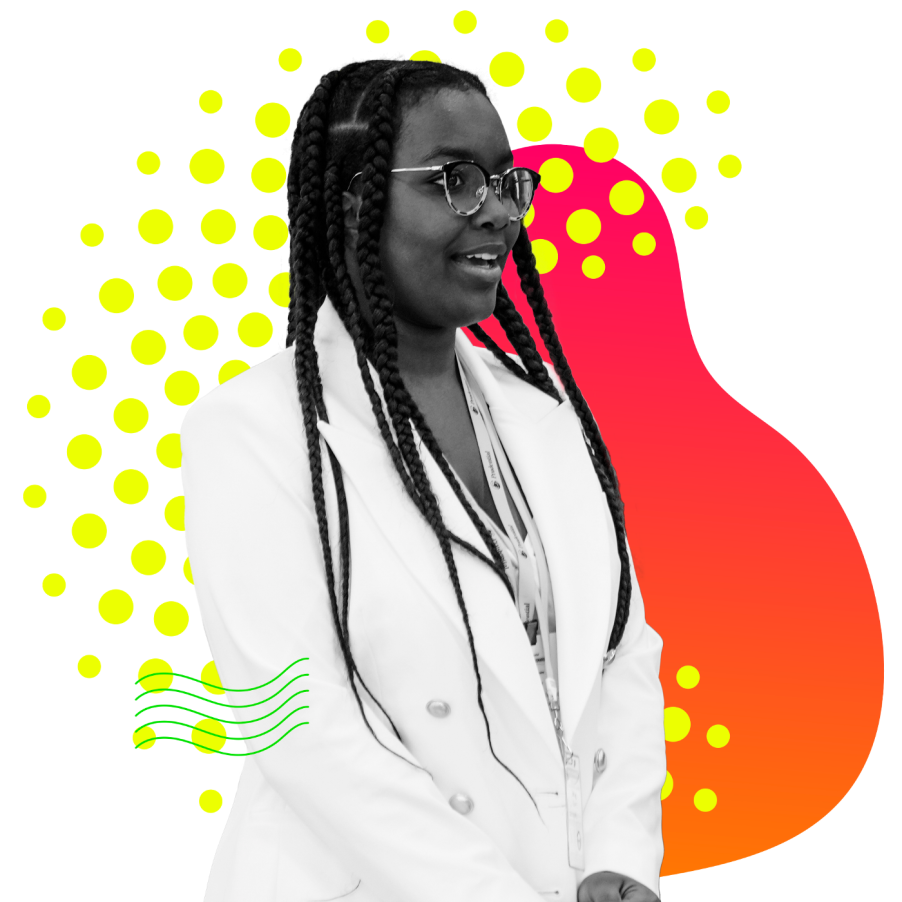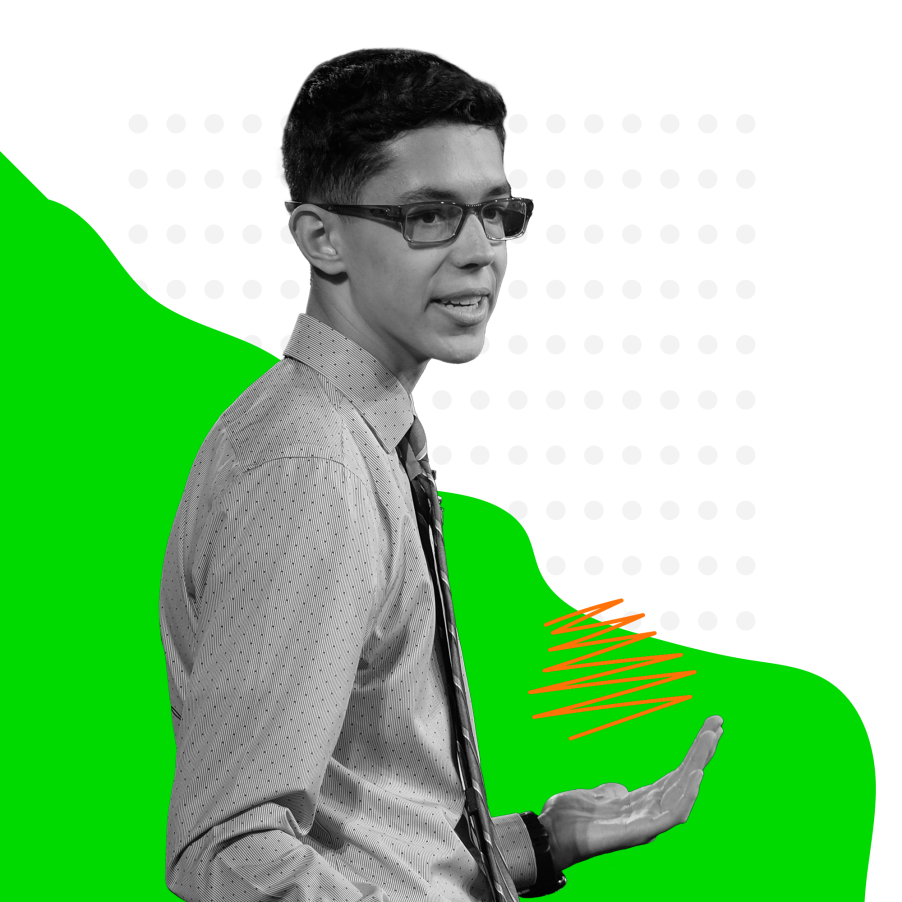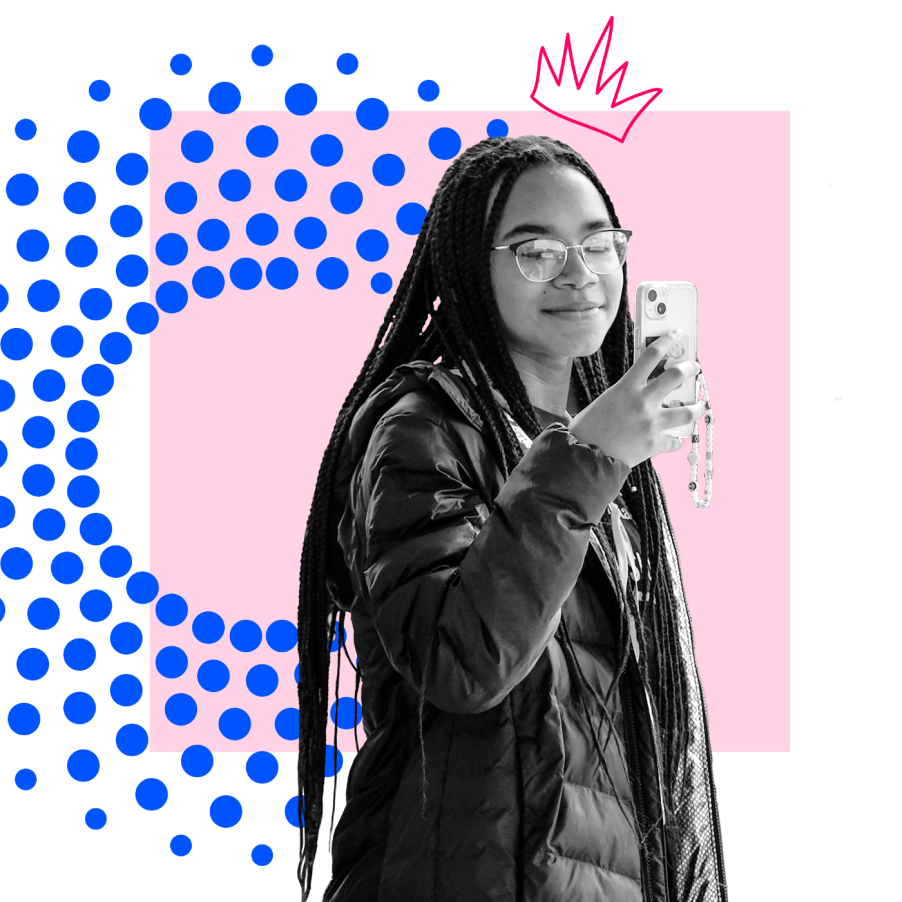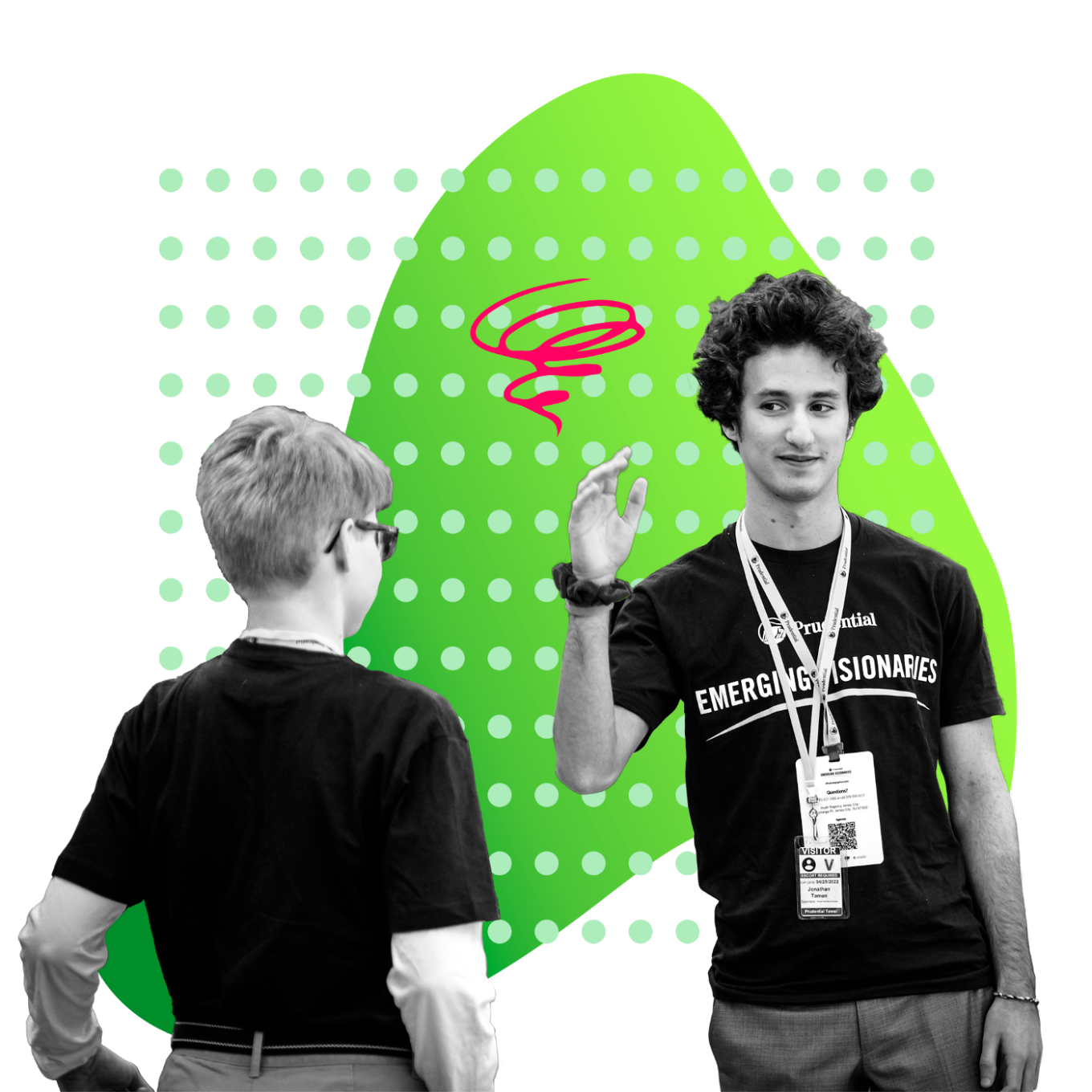
Gen Z isn’t afraid to call out or take on the issues of our time. And often young changemakers start by transforming the problems and places closest to them.
This rang true across the 400+ applications submitted to Prudential Emerging Visionaries, a program celebrating changemakers ages 14–18 across the U.S. We heard from youth who are stepping up to fix gaps in mental health resources, financial education, gender equity and much more.
We wanted to know: What patterns are emerging across all of these stories? And how do those trends deepen our collective understanding of what it means to be a young changemaker in our current world? Here’s a snapshot of what we learned.
Young leaders are getting inspired at school
When we asked young people to describe how they found their “spark” — that first flicker of an idea to make change — over 40 percent of the time the answer involved school. Inspired by fellow students, some changemakers linked arms to change the status quo, like Sriya who organized a group to support young women pursuing STEM at her school and beyond.
For others, like Catherine, an educator played a pivotal role. Sitting in her psychology class in April 2021, Catherine and her teacher talked about how mental health among the student body had plummeted — perhaps due to stress or pandemic isolation. Catherine’s teacher asked, “Is there anything you think you could have done differently to change your mental state?” For Catherine, the question sparked an awakening:
“At this moment, everything clicked. I realized that, had I known what I do now when I was a freshman, the outcome and overall mood of my high school experience would have been changed entirely for the best.”
As a result, Catherine started Peer Support, a student-run program to form meaningful connections across campus and support first year students’ mental health.
Acting as “non-controlling adult allies,” educators can help create spaces where young people educate one another and create new ideas. Parents play a role, too — nearly 20 percent of students got inspired at home; meanwhile, 25 percent discovered their spark in their community.
We’re seeing where young changemakers discovered their desire to make a difference. But what about the why?
Don’t underestimate empathy
Making change comes at a cost, including a lot of time and energy. That’s why young changemakers rely on an inner purpose that keeps them going. Many unlocked that purpose when they began to understand how an issue affected others — like their friends, neighbors, or family — and it compelled them to action.
Take Kayli Joy in Los Angeles, California, founder of Girl Well. Kayli Joy wanted to do more for her neighbors who were experiencing homelessness, including the 68,000 children who identified as experiencing homelessness in L.A. during the 2018–19 school year. She recognized that many teenage girls — especially girls of color — were overlooked and saw an opportunity to help make self-care more accessible to young women facing displacement.
“During the pandemic, a lot of girls just did not have access to self-care because they’re in the foster care system, because they were moving homes, and because they were taking care of their siblings, because their parents were working multiple jobs,” Kayli says. “They said that the kit [we created] was something that they had of their own. And that meant the world to them that nobody could touch it like it was theirs and helped them become a better version of themselves.”
Empathy isn’t the only thing driving youth to make change. Lived experiences and personal passions played a key role for over 30 percent of young changemakers. For example, when Sayers, who was diagnosed with Cerebral Palsy, discovered the sport of Frame Running, it changed her life, and she knew she wanted to make it possible for more people to participate.
“I was fascinated with all sports from an early age, and I dreamed of being able to run like my sister and parents did… [When we discovered Frame Running] for the first time, I felt so free, and I was eager to share the experience with others.”
Sayers worked with her parents to start a local Frame Running club. Knowing the frames were expensive, she also started a nonprofit to help people afford them. “I was so excited when Watch Me Run was born,” she says. “We chose the name because we want for others, like me, to finally have the opportunity to tell their friends and family, ‘Watch me run!’”
Whether it’s empathy, experience, a personal passion, or just the urge to solve a problem, there are no shortage of reasons that young changemakers step up to meet the moment.
Peer-to-peer learning is on the rise.
Across 30 percent of applications, we noticed a third trend: young people are supporting other youth to step into leadership. Some youth leaders are designing student-led tutoring programs at schools and mentorship programs for youth seeking out connections.
In New Jersey, Mirika founded BookOrators, a student organization that teaches reading comprehension skills in a fun and interactive way while helping students meet other kids to talk about books in a safe environment. Mirika started the project when she noticed that her brother’s elementary school had discontinued independent reading time.
“Reading has always been a huge part of my life,” she says. At the same time, “Literacy rates have dropped drastically in the past decade, especially in this technology-driven era. [And] schools focus on fixing low test scores rather than having students work on their reading comprehension skills.”
So, she started reading comprehension and book discussion workshops with students at her former elementary school. When COVID-19 cut the workshops short, Mirika brought BookOrators to a digital platform. “I found members worldwide interested in joining the BookOrators student team. With a team of over 90 students and eight chapters, we’ve developed a tight-knit community of readers who want to pass on a love for reading to younger students,” she says.
Initiatives like BookOrators not only fill a need, but also chart new opportunities for more youth to develop their leadership skills.
Changemakers are also creating platforms for peers to share their stories and art. For example, Anya Shukla in Washington co-created The Colorization Collective — “by teens of color for teens of color” — to provide young artists with opportunities to showcase their work, build their professional skills, and get matched with mentors who look like them.
Anya explains: “Amidst an unpredictable summer, this opportunity provided 13 teens — from New Yorkers to Seattleites — with much-needed support and stability,” along with the chance to explore their identity through art.
Inclusion is at the heart
Across every type of project — from mentoring programs to tech solutions — we saw a clear focus on equity. Students are set on creating a world that is more youth-friendly and inclusive — often starting by creating more opportunities for young people like them.
In Oregon, Aaron co-founded Project Lotus, an initiative that destigmatizes mental health and provides culturally competent care for Asian American and Pacific Islander communities. In California, Rachel is working to make business careers more accessible to Black women through her project Black Women Mean Business. Meanwhile, in Pennsylvania, Isabella Hanson is inviting students of all backgrounds to share powerful messages about racial justice and advocate for change through poetry and art contests with her initiative I Matter.
“Youth voices have not been integrated into the national conversation on social justice and equality,” Isabella says. “The “I Matter” project was created to encourage students to process their feelings and to give them a medium to present those thoughts, through the use of poetry and art, to the broader public.”
Young changemakers know their voices and ideas have the power to change society for the better. They recognize the importance of building coalitions for the good of all. At the same time, the work of Isabella and others reminds us that every individual’s story matters. “Young people” are not simply a demographic — they’re a force for change.
-
Prudential Emerging Visionaries is a partnership between Prudential Financial and Ashoka, with advisory support from the Financial Health Network. It honors young people between 14 and 18 years old across the United States for leading initiatives that produce fresh, innovative solutions to current financial and societal challenges.
